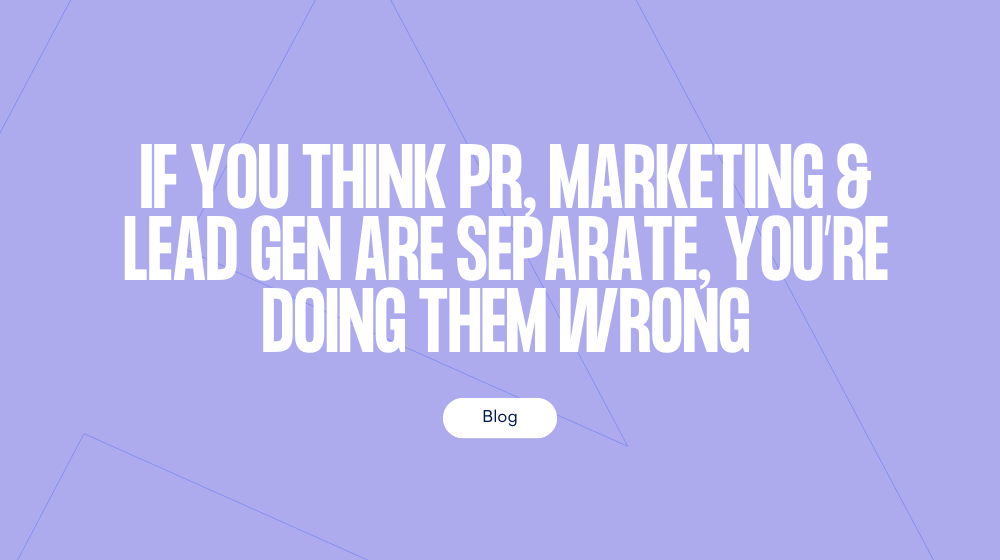Although we think of PR, marketing and lead generation as all part of the communications mix, organisations often deliver them separately and for separate purposes. While that approach may have made sense historically, when the boundaries of those disciplines were more defined and the outputs more distinct, it’s not the way to go about things now.
Back in the day, marketing shaped how organisations should be perceived through branding, identified target audiences and created targeted messaging and ads for those audiences. PR took the messaging and audiences to create press releases, place interviews and run events to drum up awareness about organisations and shape reputation. Any lead gen project would typically be tacked on the side and run separately, often with its own distinct goals, approach and messaging.
Today, with the rise and maturation of the internet, these activities are far more intertwined. Press releases (or articles based on them) are published on third-party websites with links generating traffic back to company websites, elaborate marketing videos generate column inches and lead gen programmes inform how organisations design their websites and marketing strategies. Our client Wranx can be used as a good example of this. At the start of last year, it exhibited at the Learning Technologies 2016 show and it is due to exhibit there next year too. Nowadays, the opportunity presented by events like this extend beyond just the footfall Wranx will get to its stand, but onto the Learning Technologies website (or at least it will when the page content is added…) and possibly its social media channels too. Wranx, of course, blogged and tweeted about the event, signposting people towards its stand, while a press release syndicated on third-party websites not only drove traffic to the stand, but also provided links back to the Wranx website and to its social media profiles. Exhibition footfall was driven from both online marketing and press content, with subsequent website traffic driven from activity at the event and accompanying online activity. Not only did the event allow Wranx to generate sales leads from the floor of the Olympia, it meant it generated them back on its website too.
So, how are we to untangle these threads if each is contributing to each other’s KPIs? Well, one way is to set targets at both a very granular level and at a universal level. If you know the sort of impact each channel is getting in its own right, then you can set targets accordingly and monitor, say, the amount of coverage and the number of impressions PR activity is generating.
At the other end of the scale, you might target an overall conversion rate of 2% on your website, acknowledging that traffic will have come from a mix of from PR, marketing and lead generation activity. The main thing to know is that each channel is performing well at a fundamental level and is contributing to conversions on your website at an overarching level.
For more information on using PR, marketing and lead-gen together for scale, download our Scale-Up guide by clicking on the below image:




